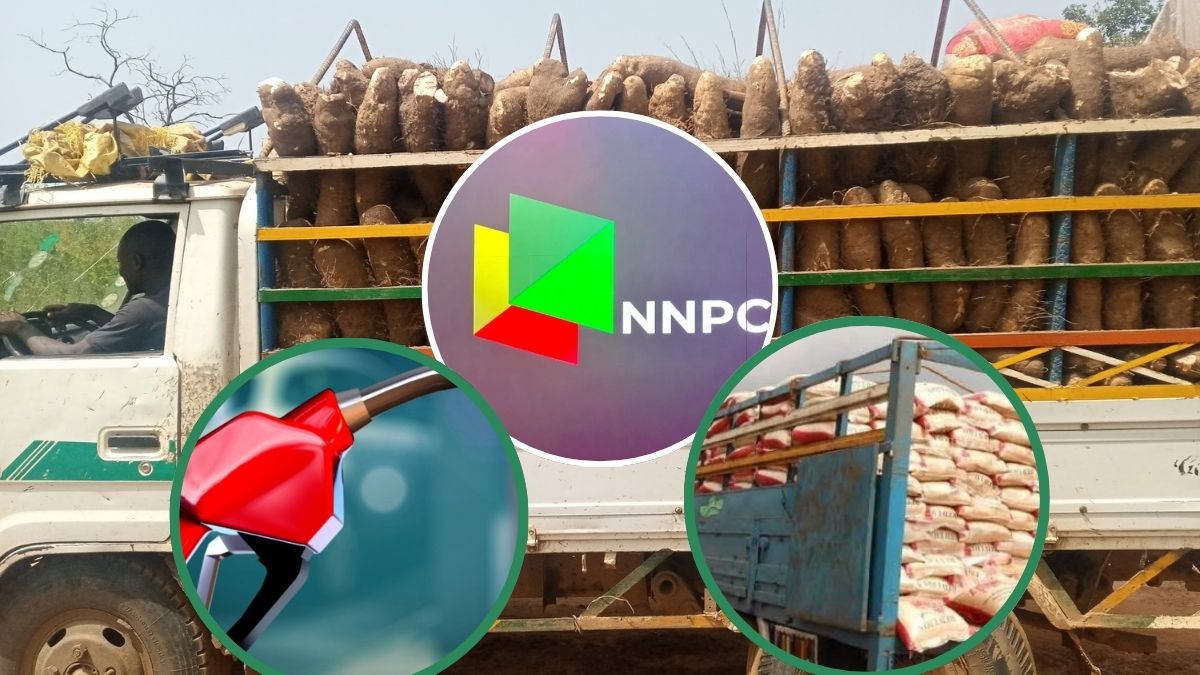News in Brief:
– Soaring fuel costs are driving up transportation expenses within Nigeria’s food supply chain, leading to higher food prices for consumers.
– This trend is exacerbated by seasonal fluctuations in truck availability, further impacting food affordability.
Stakeholders in the Nigerian food supply chain have predicted that consumers may continue to grapple with high food prices for the foreseeable future as the impact of elevated fuel costs continue to affect the supply chain significantly.
Transporters, traders, and consumers agree that the escalating price of fuel forms the bulk of transportation expenses. This is a critical component in moving food products from farms to markets nationwide. To offset the heavy costs incurred in transporting items from rural areas to urban centers, transporters have passed on these expenses to customers. Consequently, consumers have had to pay more for food items; a situation that shows no signs of abating soon.

The reality on the ground
An independent survey by this publication in the Rago market in Alaba, Ojo local government area (LGA), Lagos State, Nigeria —a hub for food commodities transportation— verifies the assertion above.
Sani Bima, a truck driver transporting goods to Kano, highlights the impact of diesel prices on transportation costs. He reveals that the cost of transporting a full trailer load to Kano has increased from ₦1.2 million to ₦1.8 million due to the rise in diesel prices.
“You know it’s this fuel (diesel) that added money that is the problem,” he revealed. “Fuel alone can gulp almost half a million naira.”
“Before, with ₦1.2 million, or less, you can move your goods to Kano, Taraba, Bauchi and other northern states. But now it’s ₦1.8 million. And as you can see it’s the big one (truck), while the smaller one you can get it for ₦1.4 million,”Bima said.
He also mentions the discrepancy in fuel prices between Lagos and the North, adding to the transportation costs.
“In Lagos here we get the fuel cheaper than in the North where we have to pay an additional two or three hundred naira more. So, this is a main issue.”
Furthermore, Bima emphasises the challenges posed by the long journey, including road hazards and customs checkpoints, which contribute to increased transportation expenses.
Also, Sa’adu Bukar, another truck driver, corroborates Bima’s claims, stating similar challenges in transporting goods to Katsina. He mentioned that he is taking delivery of a consignment of palm oil to Katsina.
He says he charged ₦1.4 million for the transaction. His was a smaller truck and trailer than Bima’s, but the price difference is only a few hundred thousand naira short of the latter’s.
Bukar is expected to deliver his goods within three or four days, barring any unforeseen circumstances. He disclosed that he has goods waiting to be brought to Lagos upon completion of the present task, which he has already collected 50% of the ₦1.2 million charged.
A seasonal shift in transportation dynamics
Meanwhile, from Mr. Bukar’s revelation above, it appears relatively cheaper to move goods from the North to the South. Commodities, trading and logistics expert, Ebenezer Ameh, gives reasons for this.
“That’s because there are surplus of trucks in the northern state now as most of the truck in the country have moved to the North where they had to deliver fertilisers from companies in Port-Harcourt (Indorama) and Lagos (Dangote) to farmers for the planting season,” he explained.
Mr. Ameh, however, stated that the reverse would be the case when the harvest season begins. “Trucks will move from the North to the South until farming season,” he says. This is a situation he adds that will make trucks from the North more expensive due to the increased demand.
The North: Nigeria’s food basket
Essentially, Northern Nigeria serves as a critical food basket for bustling urban centers in the South, such as Lagos. The Northwest and Northeast produce 80% of Nigeria’s grains.

Effectively, the region’s agrarian economy makes it a major producer of staple foods like rice, maize, and millet. These commodities are transported in bulk to southern cities, making it more cost-effective to source food items from the North.
However, the rising cost of transportation due to high fuel prices is jeopardising this cost-effectiveness, leaving the consumers to bear the uncomfortable brunt of high food prices.
Therefore, analysts warn that unless fuel prices decline significantly, consumers should expect continued upward pressure on food costs. To mitigate this impact, exploring alternative transportation methods, and increasing production efficiency are potential solutions. The alternative methods include the Lagos-Kano, or the West- East Coastal Rail Line projects that are underway in construction. There is also the adoption of compressed natural gas (CNG) vehicles, which cost less per refill and many mega distributors are eyeing.
These solutions however are likely to take, and in the specific cases mentioned above, have taken time to implement.



